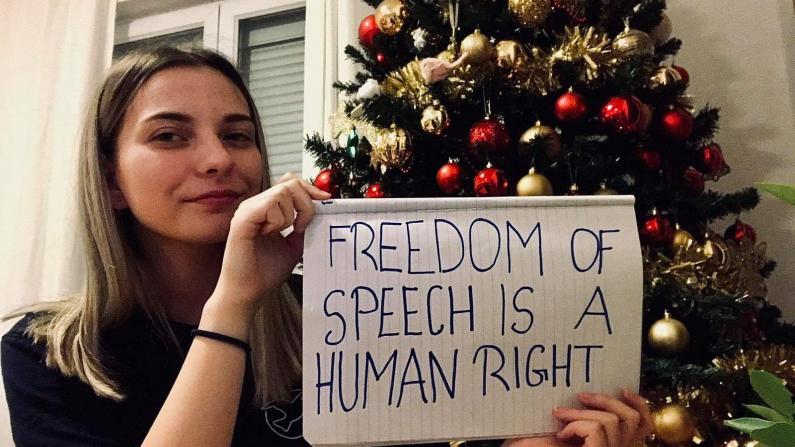
General Declaration of Human Rights
ARTICLE 26
1. Everyone has the right to education. Education shall be free, at least in the elementary and fundamental stages. Elementary education shall be compulsory. Technical and professional education shall be made generally available and higher education shall be equally accessible to all on the basis of merit.
2. Education shall be directed to the full development of the human personality and to the strengthening of respect for human rights and fundamental freedoms. It shall promote understanding, tolerance and friendship among all nations, racial or religious groups, and shall further the activities of the United Nations for the maintenance of peace.
3. Parents have a prior right to choose the kind of education that shall be given to their children.
We are a youth group from Gornji Vakuf-Uskoplje, peacebuilding activists participating in the project titled “The Future We Want 2” that is being realized by Pro Peace in collaboration with the OC Gornji Vakuf-Uskoplje and Nansen Dialogue Center Sarajevo, and we would like to express our concern in regards to threats against the stated Article 26 from the General Declaration of Human Rights and we have therefore decided to share our personal experience in education during the COVID-19 pandemic in Bosnia and Herzegovina and to use our right of expression as following:
Education in time of pandemic
During the COVID 19 pandemic we are prohibited from or advised against performing numerous activities, and schools, many restaurants, stores and coffee shops are closed. Since all problems have a solution, restaurants and stores offer delivery service and online shopping, and schools hold online classes.
Holding online classes is not simple for either the students, or the educational staff. We use various applications, scan documents and send questions and answers, trying to extract the best from this situation. We understand that online classes might have provided us with more leisure time, i.e. we copy the task, send our answers and have the rest of the day to do as we please.
Is this really beneficial?
Have we all lost our motivation, desire and will to work during the pandemic?
All we engage in during the day is watching TV, eating, laying down – OK, we occasionally do our schoolwork, but still not enough to actually learn something new and develop work habits. Professors are not able to control us or properly explain the lessons as well as they would in school.
Students fail to pay attention to classes, we cannot open certain documents, the power is out, I don’t know the code for the website I need, one professor sends lessons via Viber, another via Facebook, there are professors who don’t send anything, and even if they do, it happens after 9 PM… One student doesn’t send her homework, another failed to subscribe to online classroom, a student logged in from his sister’s number, another failed to provide his actual name on Viber and no one knows who he is, my online connection is not working properly… All these instances result in creating a stressful atmosphere in which it is difficult to learn and work.
In terms of quality, online classes cannot compare to classes held in school, where we can ask questions and be given an explanation with greater chances to understand the lesson.
But how is this situation affecting those who have no online access, cellphones, computers, and consequently lose their chance to attend classes? They cannot receive tasks, nor send their answers, they cannot pay attention to lessons and classes. Neither the school nor the family have funds to procure all items required for online classes and the number of unexcused absences from classes keeps increasing.
Pursuant to Article 14 of the Convention on the Rights of the Child “everyone has the right to education and access to professional and continuing training”.
Therefore, do the students who cannot access to online classes, lose their right to education?
Do we all have access to education with equal opportunities?
Are the educational institutions breaching the Convention on the Rights of the Child?
And what about our fear of the pandemic? Professors say that everything is going to be alright, to take care, and then they give us 40 problems and tasks to solve by tomorrow.
And what about the fear of the pandemic burdening our professors? They are required to fulfil the norms and do their job, and no one asks them if they are capable of doing this and if they have any problems.
We are all undergoing difficulties and stress. We don’t know when things will get back to normal and how long will the crisis last. It is important to provide support to each other and to be there for each other, because things won’t end well if we remain confined in our four walls with a computer. Our mental and physical health are jeopardized. We have to find a way to understand each other, to communicate with each other, our friends, professors and families.
Authors: young Peace activists („ The Future We Want 2-BiH „) from Gornji Vakuf-Uskoplje, BiH